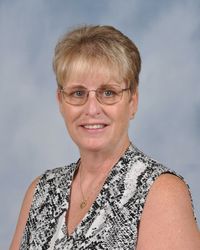
Welcome to Speech!
My name is Neita Rader. I am a Speech-Language Pathologist who works for the Houston County School District. I have the privilege of working with the students at Parkwood Elementary School, grades pre-kindergarten through fifth. I received both my undergraduate (BS) and graduate (M. Ed.) degrees in Communication Disorders from Valdosta State University. I currently hold a State of Georgia license to practice Speech Pathology, a Georgia Educator Certificate to teach in the school, and a Certificate of Clinical Competence from the American Speech and Hearing Association. I am originally from Wichita, Kansas, but I now live in Byron, Georgia. I have two grown sons and two beautiful grandchildren. In my free time I like to travel, read, and watch NASCAR.
CLASSROOM RULES 1. Do your best practice
|
What is a Speech/Language Pathologist? A speech/language pathologist (SLP) is a certified professional who works with children and adults who have communication problems. These may include:
|
Roles of a Speech-Language Pathologist Responsibilities of the Speech-Language Specialist include assessment, evaluation, eligibility determination, caseload management, and intervention. "Ultimately, the school-based Speech-Language Specialist's purpose in addressing communication and related disorders is to effect functional and measurable change(s) in a student's communication status so that the student may participate as fully as possible in all aspects of life-educational, social, and vocational." (American Speech and Hearing Association, 1999, page 6). In the public school setting, a specialist who works with students with communication disorders may be referred to as the speech therapist, speech/language therapist, speech teacher, speech pathologist, speech/language pathologist, or teacher of the speech and hearing handicapped. Their duties include......
|

